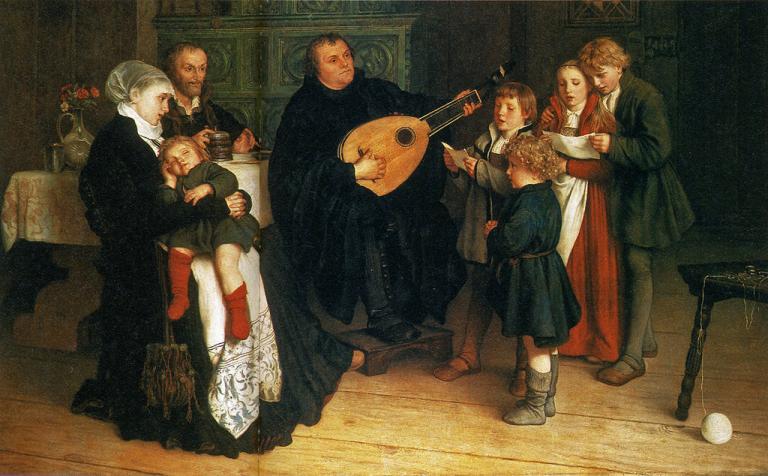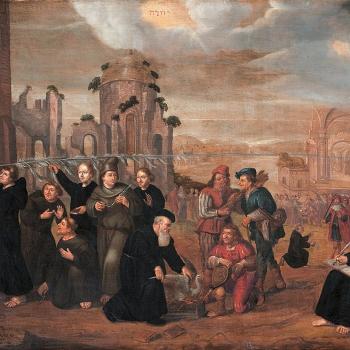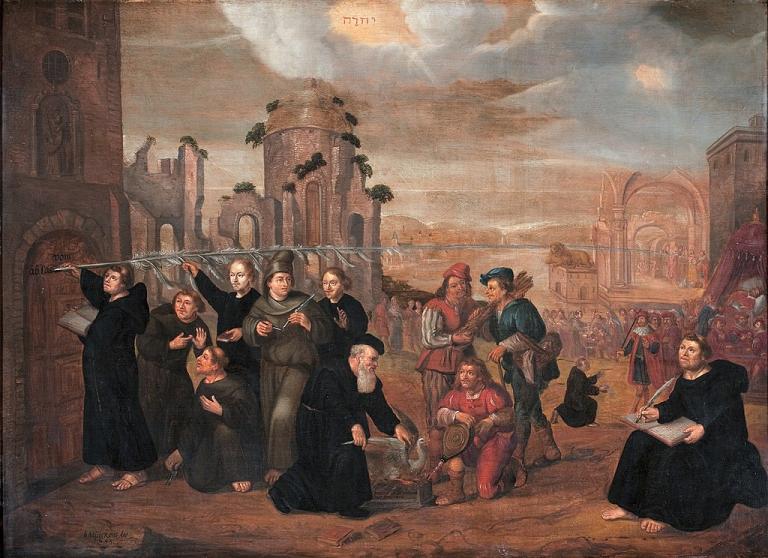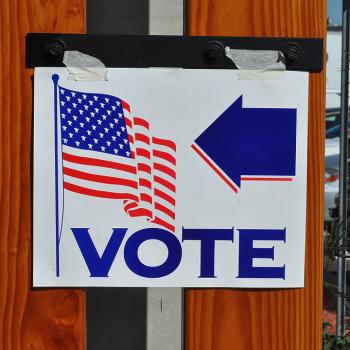Today is the Midterm Election, when the ruling party of the House and Senate will be determined, as well as a vast array of governorships, state and local officials, and referenda.
I’ll be staying up to watch the returns. I invite you to watch them with me and we can all discuss the results as they come in. I’m not committing to doing a complete “live blog,” as I have done before–I can’t stay up as late as I used to–but, if you help me, we can share our thoughts in the comments to this post.
The polls are indicating the possibility of a “red wave,” with Republicans flipping both the House and the Senate, thus thwarting President Biden and the Democratic Party’s progressive agenda. But polls are often wrong, and if they have lately been wrong in Republicans’ favor, they might also be wrong in the Democrats’ favor. The only poll that counts now is what happens at the polling place.
I would like to comment on some of the issues and factors that will shape today’s election.
On Democracy Being at Stake
President Biden and the Democrats are claiming that “democracy is on the ballot,” that if Republicans take over, with their “election deniers” and “January 6 insurrectionists,” our democracy is doomed.
But those who believe that cheating occurred in the 2020 election and that Donald Trump won are hardly anti-democracy. They may be wrong or deluded, but they clearly want democracy. They are angry because they believe their votes were outweighed by fake or illegal ballots. That may have never happened, but if it did, that would be anti-democratic. The “election deniers” are angry because, in their minds, however mistaken, they think democracy was thwarted.
It’s true that it’s important for citizens to accept election results, but not if the votes were miscounted or the election were hijacked. This is why things like voting security and accurate tabulation are so important. The process of elections must be above reproached. Which is why voting integrity laws are not anti-democratic. Quite the contrary.
The Economy, Stupid
Inflation is a huge problem. And while Presidents are often blamed for a bad economy and praised for a good economy even if they had nothing to do with it, in this case, the President and the Democratically-controlled legislative branch do bear responsibility. Funding COVID bailouts, infrastructure programs, and other spending by printing trillions of dollars that we do not have can only be inflationary. Add to that supply chain problems due to misguided COVID shutdowns and regulations, energy restrictions, and other regulatory mismanagement–in addition to the war in Ukraine and distortions in global trade–the current Democratic regime has much to answer for.
Notice that Democrats are not campaigning on their “Inflation Reduction Bill,” which actually was yet another pretext to pour more trillions of spending into the economy, making inflation even worse. Instead, they do things like Biden taking credit for the social security benefit increase, tweeting, “Seniors are getting the biggest increase in their Social Security checks in 10 years through President Biden’s leadership.” But the increase is pegged by law for inflation! The only reason Social Security payments are going up is because Biden has messed up the economy so badly!
What they will do to our kids?
There is overwhelming antipathy among parents–even those who normally lean liberal–to what has become a shibboleth for progressive Democrats: transgendering children. A study has found that 63% of Americans say they will be less likely–with an additional 9% saying they will be somewhat less likely–to vote for a candidate who supports giving anti-puberty drugs and sex change surgery to minors.
And yet, President Biden, the educational establishment, and progressive “rights” organizations are all for it. To the point sometimes of administering these life-changing treatments that can include sterilization to children without the parents’ permission! Parents across the political spectrum are scared to death of this. Suddenly, they see public schools as a physical threat to the their kids! Politicians and activists should beware of what parents will do when they believe their children are threatened.
Crime Destroying Our Cities
The George Floyd killing resulted in a wave of white guilt that allowed Black Lives Matter rioters and Antifa to burn our cities and that provoked the “defund the police” movement. Now the state of some of our major cities–San Francisco, Minneapolis, New York, Portland, and more–at least in some neighborhoods have descended into anarchy.
Progressive politicians have decriminalized shoplifting, which gives us more shoplifting, shuttering businesses and driving them away. Progressive District Attorneys are refusing to prosecute “minor crimes” and have eliminated cash bail for serious crimes, meaning criminals who are arrested are soon released back into the communities they have terrorized.
Yes, funding for the police once defunded has largely been restored, but departments are severely undermanned. Few people want to be police officers, so demonized is that profession. This is a problem especially among Blacks and Hispanics, who would be made to feel ashamed for becoming a cop, at the very time we need more minority police officers. And the officers who are still serving are severely demoralized, since the criminals they arrest are just set free, and since they risk going to jail themselves if they inadvertently hurt a criminal they are trying to subdue.
This shakes even liberals, though they may not want to admit it, as well as those who actually have to live in these war zones, mostly Blacks and Hispanics, giving them more reason to defect from the Democrats.
The COVID Chain of Events
Rank and file Americans harbor a deep resentment of the COVID shutdown and how it was handled. Yes, Trump started it, but progressives governors and bureaucrats were the most heavy-handed and punitive in enforcing their rules: forbidding people to go to work, to go to church, to mingle with friends, to go to school, etc., etc. Americans are not used to being ordered about like that.
As Stephen Kruiser points out, the government’s COVID response led to many of our other problems: inflation (due to bailouts), economic woes (due to shutting down the economy), controversies over the election (due to changing election rules due to COVID), parents’ outrage at the public schools (because of closing schools over COVID, thus harming their children, exposing the perfidy of teacher unions, and making parents aware via online instruction at home of the political and sexual curriculum their children were getting indoctrinated in).
Why Won’t You Defend Yourself?
And the big puzzler is, if Democrats think their policies are so good, why aren’t they running on them? Where are the ads taking credit for the “Inflation Reduction Act”? Where are the speeches in which politicians take credit for “criminal justice reform”? What politician is congratulating himself for critical race theory in the classroom and “gender affirmation” treatments for children?
Democrats aren’t even defending the policies they have put in place–just denying their effects or trying to distract attention away from them. As Victor Davis Hanson says, “Strangely the hard-left architects of the last two years neither offer a defense of their failing agendas, nor agree to change them.”
Most Americans Do Want Abortion
Sadly, most Americans do seem to want abortion. Most of them want some limits, but they seem willing to accept no limits, if it means the freedom to abort one’s child.
This is our nation’s original sin today. We’ll see if the lust to free ourselves–women and the men who want to have sex with them without the burden of having a son or a daughter–will outweigh all of the other factors above.
Again, have your computer with you while you watch the returns and comment on what unfolds!
Photo by Tom Arthur from Orange, CA, United States, CC BY-SA 2.0 <https://creativecommons.org/licenses/by-sa/2.0>, via Wikimedia Commons


















